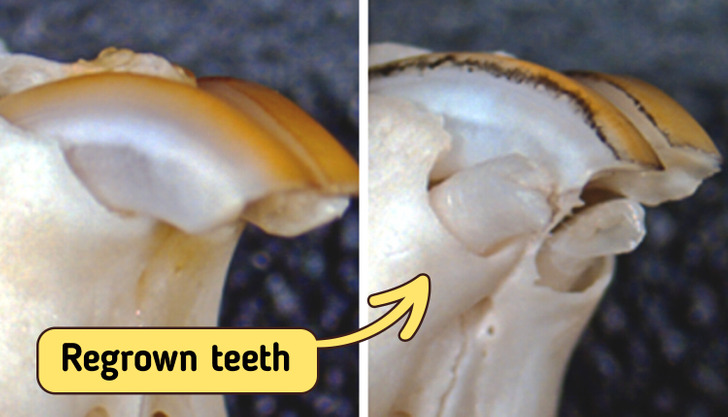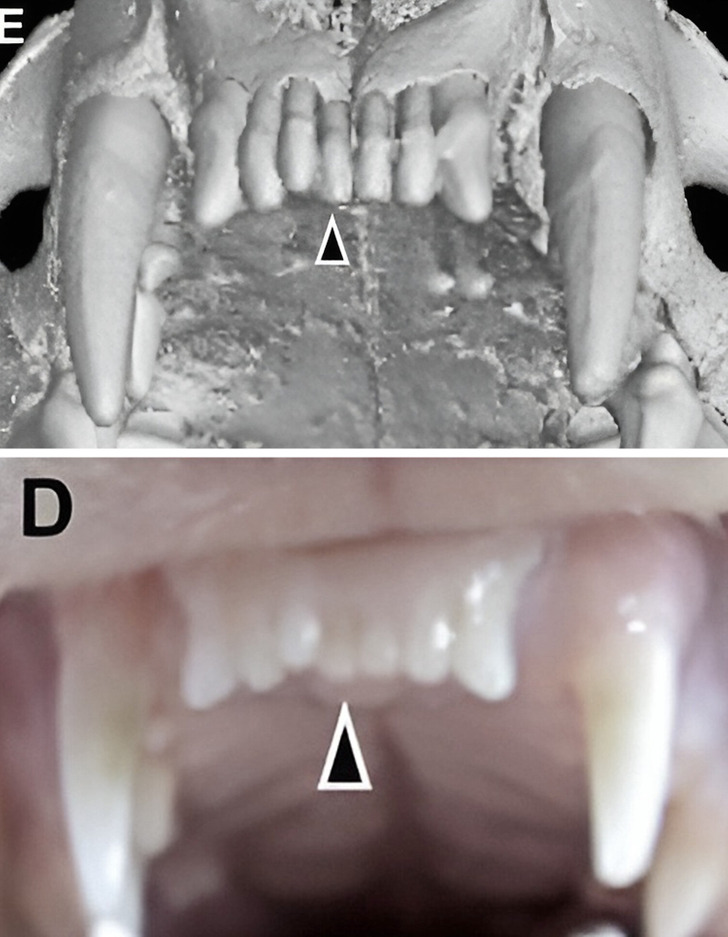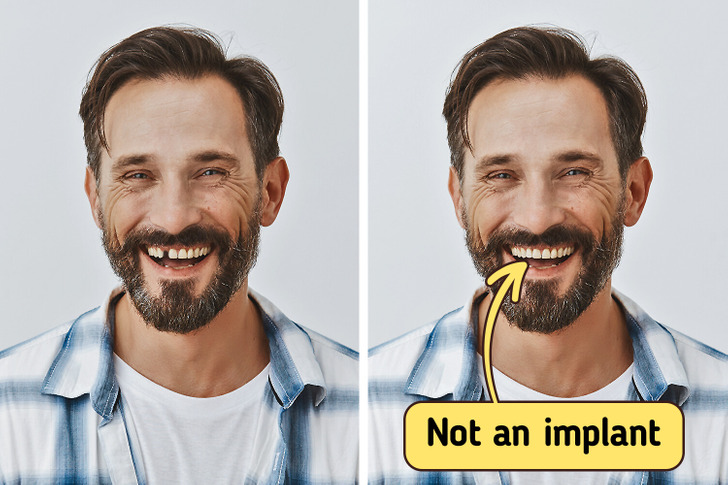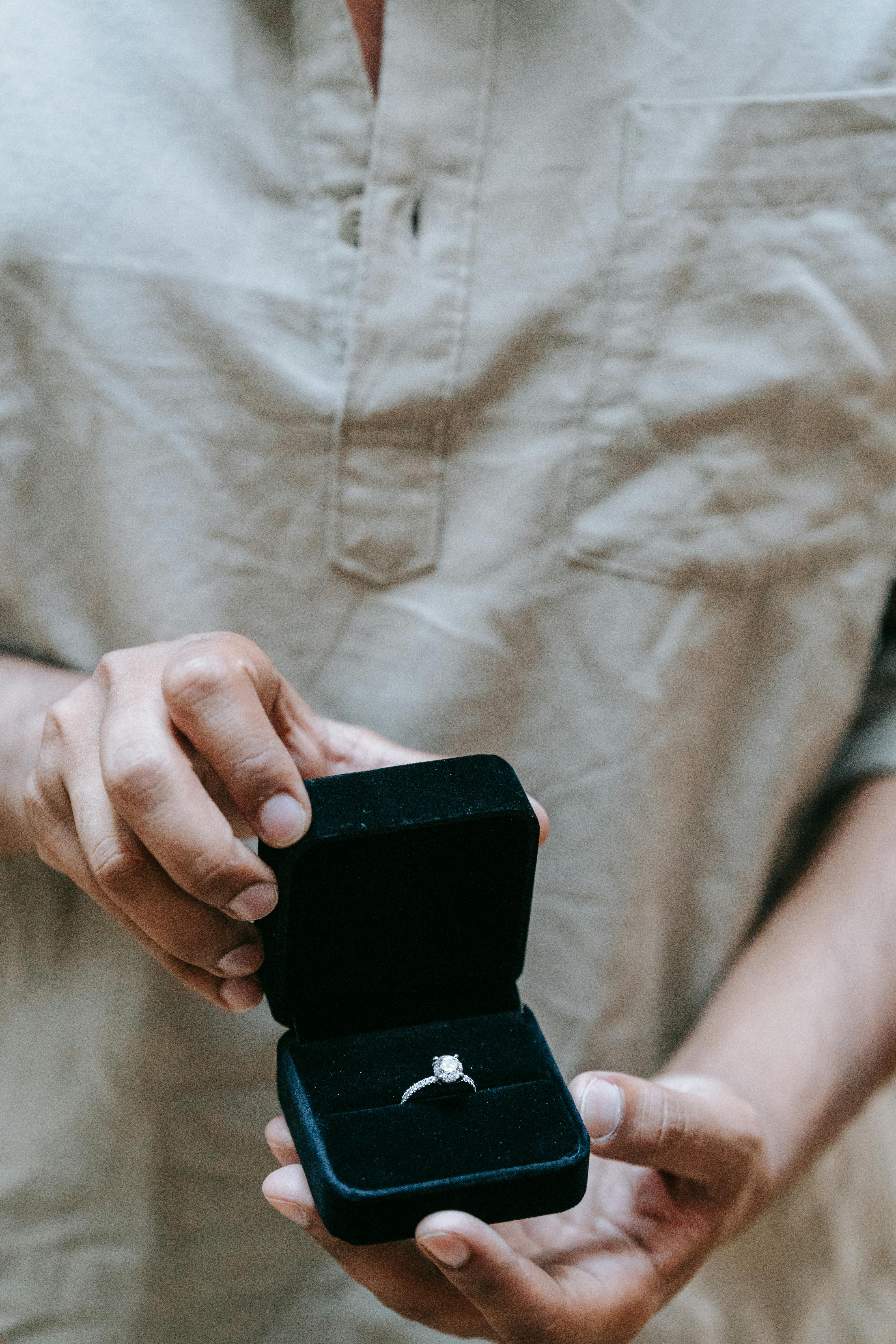The tooth fairy is a welcome guest for any child who has lost a tooth. Not only will the fairy leave a small gift under the child’s pillow, but they be assured of a replacement tooth in a few months. Unfortunately, the scenario is quite different for adults grappling with a loss of teeth. Luckily, there may be some hope thanks to a new study performed by scientists at Kyoto University and the University of Fukui.
A dental breakthrough
While the typical adult mouth houses 32 teeth, approximately 1% of the population exhibits variations of them, either possessing more or fewer teeth due to congenital conditions. Researchers have delved into the genetic factors behind cases of excessive teeth, seeking valuable insights into the potential regeneration of teeth in adults. This study is the first to show that monoclonal antibodies can help regrow teeth. It suggests a new way to treat a dental problem that currently requires implants and other artificial solutions.
A bit of science
The research team disclosed that an antibody targeting a specific gene, known as uterine sensitization-associated gene-1 (USAG-1), can induce tooth development in mice affected by tooth agenesis, a congenital condition. The findings were published in the journal, Science Advances.
As per Katsu Takahashi, a senior lecturer at the Kyoto University Graduate School of Medicine and one of the principal contributors to the study, the essential molecules crucial for the development of teeth have already been pinpointed. “The morphogenesis of individual teeth depends on the interactions of several molecules including BMP, or bone morphogenetic protein, and Wnt signaling,” says Takahashi.

On April 13, 2021, the University of Kyoto posted its first pic of newly-grown teeth in mice.
BMP and Wnt are involved in more than just tooth development; they affect the growth of organs and tissues early in the body’s development. Because drugs affecting them directly might have broad side effects, scientists are cautious. To find a potentially safer method, researchers focused on the gene USAG-1, thinking that aiming at factors countering BMP and Wnt specifically in tooth development could be more precise.
“We knew that suppressing USAG-1 benefits tooth growth. What we did not know was whether it would be enough,” added Takahashi.
The first results
Scientists looked at how different monoclonal antibodies affect USAG-1. Monoclonal antibodies are often used to treat things like cancer and arthritis and for making vaccines. Tests with this antibody showed that BMP signaling is crucial for deciding the number of teeth in mice. Also, just one treatment was enough to grow a whole tooth. Further tests confirmed these positive results in ferrets too.
“Ferrets are diphyodont animals with similar dental patterns to humans. Our next plan is to test the antibodies on other animals, such as pigs and dogs,” explained Takahashi.

Fully regrown frontal teeth in ferrets
The next steps

Now, scientists are going to test the drug on healthy adults. If that goes well, the team plans to try it on kids aged 2 to 6 with a rare tooth problem called anodontia, a genetic disorder defined as the absence of all teeth. These kids will get one shot of the drug to see if it makes their teeth grow. If everything works out, the medicine might be approved by 2030.
Takahashi sees the new medicine as an additional choice for individuals who are missing some or all of their teeth.
“The idea of growing new teeth is every dentist’s dream,” Takahashi told the Japanese newspaper, The Mainichi in June this year. “I’ve been working on this since I was a graduate student. I was confident I’d be able to make it happen.”
So hopefully, by the year 2030, humans will get a chance to have their third generation of teeth grown and say goodbye to implants. Until then, make sure to keep your teeth strong and healthy — this article will help you with that.
Preview photo credit KyotoU_News / Twitter
Meu namorado de 2 anos não queria se casar até descobrir que eu estava herdando um apartamento de três quartos — então eu entrei na brincadeira

Patrick sempre me disse que precisávamos de mais tempo antes de morarmos juntos. Mais tempo antes de ficarmos noivos. Mais tempo antes de assumirmos qualquer compromisso real. Mas no segundo em que herdei um apartamento totalmente quitado? Ele não conseguiu esperar nem mais um segundo. E foi aí que eu soube — eu nunca fui sua primeira escolha.
Durante anos, vi meus amigos se apaixonarem, ficarem noivos e começarem suas vidas com parceiros que os adoravam. Enquanto isso, eu era sempre a terceira roda, a que era solicitada a tirar fotos fofas de casal, a que brincava sobre como eu provavelmente acabaria uma louca por gatos — mesmo que eu nem tivesse um gato.

Mulher capturando momentos em um casamento | Fonte: Midjourney
Então, quando Patrick me viu em um bar dois anos atrás, pensei, finalmente. Minha vez.
Ele tinha esse charme sem esforço e quando ele olhou para mim como se eu fosse a pessoa mais interessante na sala, eu me apaixonei. Forte.
Por dois anos, ignorei as pequenas coisas. A maneira como ele nunca realmente deu — nem presentes, nem tempo, nem esforço. A maneira como ele ainda morava com a mãe e não tinha planos de mudar isso. A maneira como ele se esquivava de todas as conversas sobre morar juntos ou casamento.
“Ainda não nos conhecemos bem o suficiente”, ele sempre dizia, geralmente enquanto navegava pelo celular.
Dois anos juntos. E ainda assim, ele não tinha certeza.

Casal sério conversando | Fonte: Midjouney
Engoli a dor e disse a mim mesma que o amor era uma questão de paciência e que o compromisso viria.
Mas então algo aconteceu.
E tudo mudou.
No mês passado, minha tia faleceu. Foi repentino, inesperado. Ela era a irmã mais velha da minha mãe, aquela que sempre se lembrava do meu aniversário, que me enviava pacotes de cuidados aleatórios mesmo quando eu era adulta. Perdê-la foi como perder um pedaço de casa.
Então veio o choque.

Mulher com uma expressão ligeiramente surpresa | Fonte: Midjourney
Ela não tinha filhos, nem marido, e deixou todo o seu apartamento de três quartos para mim.
Foi agridoce. Eu teria dado qualquer coisa para tê-la de volta. Mas isso? Essa herança mudou minha vida. Nada mais de aluguel. Nada mais de estresse com aumento de custos. Uma casa que era minha.
Naturalmente, compartilhei a notícia com Patrick.
E adivinha?
Naquela mesma noite, ele apareceu na minha porta com flores (as primeiras que ele recebeu), uma garrafa de vinho (barato, mas ainda assim) e o mais chocante de tudo: um anel.

Homem na porta, segurando rosas e uma garrafa de vinho | Fonte: Midjourney
Abri a porta e lá estava ele, parado desajeitadamente no meu pequeno capacho de boas-vindas, segurando uma pequena caixa de veludo.
“Babe”, ele suspirou, exibindo aquele sorriso fácil. “Eu não podia esperar mais. Você quer se casar comigo?”
Fiquei olhando, sem saber como responder.
Duas semanas atrás, eu mencionei casualmente noivado. A resposta dele?
“Amor, anéis estão muito caros agora. Não vamos apressar as coisas.”
Mas agora? Agora ele estava pronto?

Uma pessoa segurando uma caixa de anel de noivado aberta | Fonte: Pexels
Engoli o nó na garganta e fiz minha melhor cara de surpresa. “Patrick… Eu— Eu não sei o que dizer.”
“Diga sim”, ele insistiu, com os olhos brilhando. “Estamos juntos há dois anos, querida. Está na hora. Vamos construir nosso futuro juntos.”
Construir. Certo. Porque agora eu tinha algo que valia a pena construir . Eu deveria ter jogado o anel de volta para ele. Deveria tê-lo chamado.
Mas em vez disso? Forcei o maior e mais exagerado sorriso que consegui. O tipo de sorriso que faria qualquer um acreditar que eu era a mulher mais feliz do mundo.
“Sim! Eu vou me casar com você!” Eu suspirei.

Mulher aceitando proposta de casamento | Fonte: Midjourney
Patrick soltou uma risada aliviada, colocando o anelzinho barato no meu dedo como se tivesse acabado de ganhar na loteria. O que, de certa forma, ele achava que tinha.
Ele me puxou para um abraço, apertando um pouco forte demais. “Você não vai se arrepender disso, querida”, ele murmurou contra meu cabelo. “Nós vamos ser tão felizes.”
Eu quase ri. Em vez disso, me afastei, segurando um único dedo entre nós. “Mas—”
Seu rosto ficou tenso. “Mas…?”
Inclinei a cabeça, dando a ele meu melhor olhar doce, mas sério. “Tenho uma condição.”
Seus ombros tensos relaxaram. “Oh, querida, seja lá o que for, considere feito.”

Homem pedindo sua namorada em casamento | Fonte: Midjourney
Respirei fundo e então soltei a bomba.
“De agora em diante, você sempre seguirá uma regra minha.” Eu parei tempo suficiente para ele se inclinar um pouco, curioso. “Você nunca entrará no apartamento antes de mim. Nunca. Sem exceções.”
O sorriso em seu rosto cintilou por um segundo.
Suas sobrancelhas franziram. “Uh… o quê?” Ele soltou uma risadinha nervosa como se eu tivesse acabado de dizer que ele tinha que desistir dos videogames para sempre. “Por quê?”
“É só uma coisa pessoal”, eu disse calmamente. “Se vamos nos casar, você deveria respeitar isso.”

Casal conversando | Fonte: Midjourney
Patrick hesitou, sua boca abrindo e fechando como se estivesse procurando o argumento certo. Mas então, pensando que já tinha ganhado o grande prêmio — uma vida sem aluguel — ele me deu um sorriso irônico e assentiu.
“Sim, querida. Claro. O que você quiser.”
Durante semanas, Patrick se transformou no noivo perfeito .
Ele começou a me chamar de rainha , o que era engraçado, considerando que eu costumava ser apenas uma gata — ou pior, um cara quando ele estava distraído.
Ele me preparou o jantar pela primeira vez. Bem, se você considerar cozinhar macarrão e despejar um pote de molho sobre ele como “cozinhar”. Mas eu sorri e agradeci como se ele fosse um chef cinco estrelas.

Homem preparando jantar para a namorada | Fonte: Midjouney
Ele começou a mencionar casualmente nosso futuro no apartamento.
“Amor, eu estava pensando que deveríamos comprar uma tela plana enorme para a sala de estar.” Ou, “Eu vi essa cadeira gamer em promoção. Ficaria incrível no nosso escritório.”
Ele estava escorregando, ficando confortável demais. Confiante demais. Mas eu não estava comprando nada disso. Porque por baixo daquele sorriso doce? Eu sabia que ele estava esperando.
Esperando o dia em que o apartamento seria oficialmente meu.
E com certeza? Esse dia chegou.

Dentro de um lindo apartamento aconchegante | Fonte: Pexels
O apartamento finalmente estava no meu nome. Mas não contei a Patrick imediatamente. Então, um dia, saí do trabalho mais cedo e fui para casa inesperadamente.
E adivinha no que eu me deparei?
Patrick. Dentro do apartamento. Com sua mãe. Medindo a sala de estar.
Fiquei paralisada na porta, segurando minha bolsa com força.
Sua mãe — que nunca se importou com nosso relacionamento e que mal reconhecia minha existência — agora gesticulava em direção às janelas.

Mulher parada perto da janela | Fonte: Midjourney
“Acho que cortinas transparentes iluminariam o espaço”, ela refletiu.
Patrick, pego no meio da medição, virou-se: “Oh! Amor! Você chegou em casa cedo!” ele gaguejou, deixando cair a fita métrica como se ela o queimasse.
Coloquei minha bolsa no chão deliberadamente , cruzei os braços e levantei uma sobrancelha. “É”, eu disse friamente, deixando meu olhar varrer sobre eles. “E vejo que você quebrou a única regra que eu te dei.”
Silêncio.
Patrick engoliu em seco. “Querida, eu—”
Mas antes que ele pudesse sequer tentar uma desculpa, sua mãe — abençoada seja sua pequena e arrogante alma — fungou e acenou com a mão em sinal de desdém.
“Bem, querida, agora que Patrick é seu noivo, a casa também é dele !”
E foi aí que eu perdi o controle.

Mulheres tendo uma conversa tensa | Fonte: Midjourney
Eu ri na cara deles.
Patrick se encolheu, enquanto a boca da mãe se apertava em uma linha apertada e desaprovadora. A tensão na sala ficou espessa.
“Ah, você pensou que a gente ia se casar de verdade ?”, perguntei, balançando a cabeça enquanto enxugava uma lágrima imaginária do meu olho. “Que fofo.”
Os olhos de Patrick se arregalaram de horror. “O-O quê? Querida, é claro—”
“Não, não, não”, interrompi, levantando uma mão. “Deixe-me ser claro: eu sabia por que você me pediu em casamento. Você nunca me quis — você queria o apartamento.”
A mãe dele soltou um suspiro escandalizado, apertando o peito como se eu tivesse acabado de dar um tapa nela. “Como ousa acusar meu filho—”
“Não, como vocês dois ousam planejar se mudar para o meu apartamento enquanto eu estava no trabalho!”, eu retruquei, minha voz cortando a sala como um chicote.

Mulheres tendo uma conversa tensa | Fonte: Midjourney
Patrick estava suando agora, suas mãos erguidas como se pudesse acalmar a situação. “Querida, por favor, eu só—”
“Pare. Simplesmente pare .”
Seu rosto se contorceu, preso em algum lugar entre a raiva e o pânico, e eu podia dizer que seu ato cuidadosamente elaborado estava desmoronando.
Mas eu não tinha terminado.
“Vamos falar sobre o que realmente está acontecendo aqui, Patrick”, eu disse, cruzando os braços. “Você não estava pronto para propor casamento por dois anos . Mas no segundo em que eu herdar um apartamento totalmente quitado? Você de repente está de joelhos?”
Patrick piscou rapidamente, lutando por uma desculpa. “Isso não é—eu acabei de perceber o quanto eu te amo, querida!”
Dei uma risada aguda. “Ah, é mesmo? Então me diga, quando exatamente você ‘percebeu’ isso? Antes ou depois que você e sua mãe começaram a planejar onde os móveis dela ficariam?”

Mulher confrontando o namorado e a mãe dele | Fonte: Midjourney
Sua mãe zombou, dando um passo à frente como uma rainha se dirigindo a seus súditos. “Jovem, você está sendo muito ingrata. Meu filho está lhe dando o sobrenome dele, e você o está tratando como um interesseiro !”
Silêncio.
Então, Patrick explodiu.
“BEM! Quer saber a verdade?” Ele jogou as mãos para cima. “É! Eu não estava pronto para me casar com você antes porque, francamente, você não é o tipo de mulher pela qual os homens lutam!”
Uau.
Mas ele não tinha terminado.

Casal discutindo | Fonte: Midjouney
“Você deveria ser grata por alguém como eu ter lhe dado uma chance! Você não ia se sair melhor, Janet!”
Respirei fundo. “Você está certo, Patrick. Talvez eu não faça nada melhor.”
O rosto dele se iluminou, pensando que eu estava recuando. A mãe dele sorriu, claramente acreditando que eles tinham vencido.
Então, peguei minha bolsa, tirei uma pilha de papéis cuidadosamente empilhados e os joguei no balcão da cozinha.
“Ainda bem que não terei que descobrir”, eu disse casualmente. “Porque, a partir desta manhã, eu vendi o apartamento .”
Seu queixo caiu .

Casal tendo uma conversa tensa | Fonte: Midjourney
“Você O QUÊ ?!” Patrick gritou, avançando em direção aos papéis como se pudesse desfazer o que já havia sido feito.
“Você me ouviu”, eu disse, sorrindo. “Eu assinei a papelada esta manhã. O dinheiro já está na minha conta.”
Patrick parecia que ia desmaiar. Seu rosto empalideceu, e pela primeira vez desde que o conheci, ele não tinha nada a dizer.
“Você… você está mentindo “, ele sussurrou.
Dei de ombros. “Ligue para o corretor. Pergunte.”
Ele cambaleou para trás, seus olhos disparando freneticamente para sua mãe, que agarrou seu braço em pânico.

Homem em pé ao lado de sua mãe chocada de 50 anos em um apartamento luxuoso | Fonte: Midjourney
“Mãe, o que vamos fazer ?!”
E isso? Esse foi o último prego no caixão.
Peguei minha bolsa, caminhei até a porta e me virei.
“Você está certo, Patrick. Eu não ia fazer nada melhor. Mas, para minha sorte…” Eu lhe dei o sorriso mais brilhante e satisfeito da minha vida.
“Acabei de fazer.”
Então, apontei para a porta. “Agora, saia dessa casa o mais rápido que puder.”

Mulher expulsa o namorado de casa | Fonte: Midjourney
O apartamento foi vendido mais rápido do que eu esperava. Em uma semana, a papelada foi finalizada, o dinheiro estava na minha conta e eu estava fora. Mudei-me para uma nova cidade, consegui um pequeno apartamento aconchegante nos meus próprios termos e comecei do zero. Sem aproveitadores. Sem namorados manipuladores. Apenas eu , vivendo a vida do jeito que eu merecia.
Patrick, é claro, perdeu a cabeça.
Ele ligou sem parar, implorando para “resolver as coisas”. Ele jurou que “nunca quis me machucar” e que poderíamos “recomeçar”.
Bloqueado.
A mãe dele deixou uma mensagem de voz de três minutos me chamando de “bruxinha sem coração” por “arruinar o futuro do filho dela”.
Também bloqueado.

Mulher rolando em seu telefone | Fonte: Midjourney
Mais tarde, um amigo em comum me disse que Patrick não tinha economias, nem plano B e — grande surpresa — ainda estava morando com a mãe.
E eu?
Eu estava no meu novo apartamento, tomando vinho na varanda, mais feliz do que nunca.
Pela primeira vez na minha vida, eu não estava me acomodando .

Mulher tomando uma taça de vinho | Fonte: Midjourney
Se você achou essa história inacreditável, espere até ouvir sobre o namorado de longa distância que pensou que poderia dar uma surra. Ele visitou a namorada, bebeu e jantou às custas dela e presumiu que ela não notaria. Mas o que ele não esperava? Ela tinha uma aula planejada que ele nunca esqueceria.



Leave a Reply